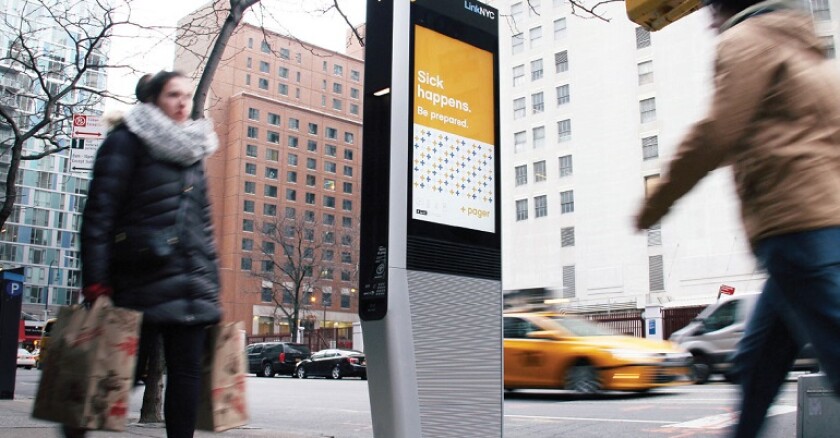The plan is aimed at bridging the city’s digital divide, and over the coming years, the city predicts that it will bring 739 new kiosks to neighborhoods it has designated as lacking in adequate Internet service. Overall, the city plans to bring 2,000 new 5G, or fifth generation, kiosks to the five boroughs over the next several years.
“We want to reach out at those that historically have had access the least, and get them parity,” Fraser told the Daily News. “Because when we look at broadband these days, broadband and connectivity has increased in relevance, increased in importance to the point where it’s not a luxury, it’s as essential as having water — especially for those kids that are school age.”
Fraser and Adams plan to unveil the first of the new kiosks on West Burnside Avenue in the Bronx on Sunday.
Typically, the new wireless hotspots will have a range of about 1,000 feet and will enable most anyone within that radius to access high-speed Internet service for free, Fraser said. Accessing it will work the same way travelers can access wifi service at a hotel.
Approximately 1,900 wireless kiosks are already in place and use a slightly older technology. The new kiosks, which are produced by LinkNYC, will allow users better connectivity, access to a broader scope of information, and at faster speeds.
Fraser pointed to the remote schooling during pandemic lockdowns as a key example of why the new kiosks are necessary.
He pointed to situations in which kids couldn’t connect to the Internet, preventing them from doing school work, but he also noted that the plan isn’t just about educational parity — he wants equality when it comes to how kids are able to socialize and how adults hunt for jobs as well.
“If you don’t have access to broadband, you can’t be competitive,” Fraser said. “If you don’t have broadband at home and you’re unemployed and you’re looking to upscale and you’re trying to find new job opportunities, but the thing that connects you to that, you don’t have access to — it further perpetuates the condition you’re in where you can’t find a way out.”
©2022 New York Daily News, Distributed by Tribune Content Agency, LLC.














